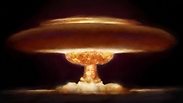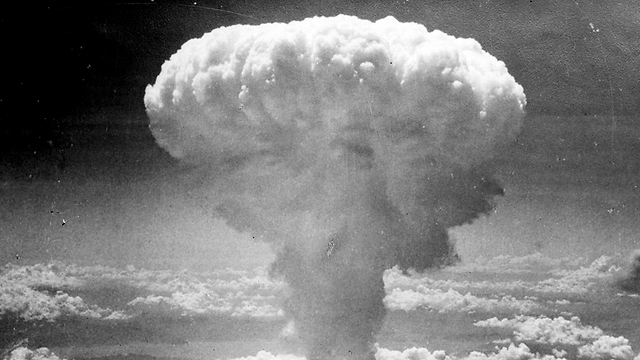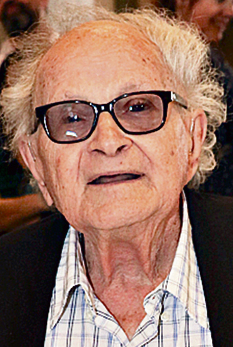
The nuclear batteries and the secret listening devices
His name was Zalman Shapiro, a member of a family of Holocaust survivors living in America; only now, a year after his death, did his great secret see the light of day: nuclear batteries he invented were used to operate secret listening equipment the IDF planted in enemy territory.
He was a Jewish-American scientist, a member of a family of Holocaust survivors who linked his fate with Israel and supplied it with special nuclear batteries that helped win the Six-Day War. On Monday, about a year after his death, the great secret of Prof. Zalman Shapiro was revealed.
The captivating story of Shapiro, who was 96 years old at the time of his death, was revealed Monday in the Tribune Review in a series of interviews with journalist Mary Ann Thomas. Shapiro was the owner of a large nuclear equipment manufacturing company. In the interview, he said that a year before the Six Day War, he supplied Israel with nuclear batteries that were used by its intelligence community. They were intended for long-term operation of sophisticated listening devices deep in the Arab home front.
Thomas claims in the article that the information obtained from the secret facilities operated by the batteries paved the way for Israel's crushing victory in the Six-Day War. According to her, former Mossad official Rafi Eitan approved the transfer of batteries to Israel.
According to foreign reports, the Sayeret Matkal Special Forces unit was the one that planted the listening devices in the heart of the Arab states. One of the devices, which was set up by Maj. Gen. (Res.) Amiram Levin, is displayed in the Museum of the Yom Kippur War in Cairo.
Many of the details exposed in the article were made known to Yedioth Ahronoth ten years ago, in a series of interviews I had with the late Meir Amit, who was the head of the Mossad during the Six-Day War. The interviews dealt with Israel's intelligence preparations for the war, but were rejected over the years by censorship.
So who is Zalman Shapiro, the man to whom Israel owes so much? He was an inventor, and a genius in chemistry and physics. He was born in Ohio to a religiously observant family, some of whom perished in the Holocaust. During his scientific career, he was one of the reactor developers of the first nuclear submarine, he developed nuclear fuels of various kinds and registered countless patents. He was the owner of the Nuclear Materials and Equipment Corp (NUMEC), which operated in the city of Apollo, Pennsylvania, and manufactured nuclear equipment.
In the past, it was suspected that hundreds of kilograms of fissionable material of military quality had disappeared from his company's warehouses and had been smuggled into Israel. He denied, was not tried, but at the same time, was not cleared of the suspicions until the day of his death.
The special batteries he supplied to the listening facilities were developed at Mound Laboratories in Ohio in 1954 and were considered a scientific revolution. They were used by satellites, spacecrafts and weather monitoring stations in remote and hard-to-reach areas, such as Antarctica. To this day, NASA spacecrafts like Voyager 1 and 2 that departed earth about 40 years ago are still powered by these batteries.
It is a kind of a small nuclear reactor that runs on a material called strontium-90, which can generate a high level of energy over many years. Shapiro's company developed a tiny version of this mechanism for the operation of pacemakers as well.
Shapiro said in an interview that a year before the Six-Day-War, Mossad chief Meir Amit got in touch with him: "He could feel that Egypt was planning something and therefore, wanted Israel to have the ability to gather intelligence about the Egyptian army." According to him, Amit asked him to supply the batteries in favor of tiny listening devices that would connect to telephone lines and wireless transmissions. "The batteries had to be strong enough to convey the information and had to have a range to pick up what the Egyptians were saying to their allies."
Shapiro revealed that his company sent at least one technician to Israel to make sure the batteries were working. He said that he helped Israel not only on this issue, but also on many other issues. At the same time, he refused to elaborate stating they were still classified.
Shapiro said he also had contact with former Mossad senior official Rafi Eitan, whom he met in 1968 during his visit to the US. He said the CIA and the FBI knew about Eitan's arrival in the United States and the purpose of his visit. "When I visited the factory in the 1960s," Eitan told the American newspaper, "there were very few people in the world who knew how to produce these batteries."
Oscar Gray, vice president of NUMEC at the time, approved the supply of batteries to Israel. According to him, the Israelis claimed, at least overtly, that they needed batteries for weather forecasting, but he supposed these were telephone line-tapping devices.












